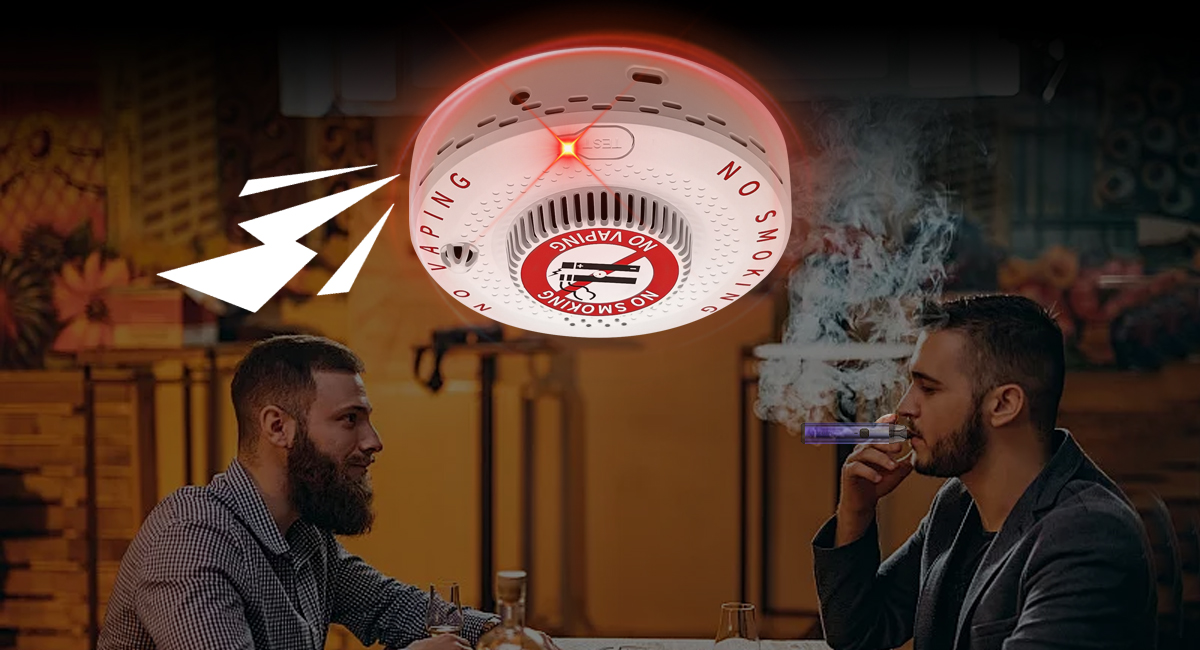
1. Vape Detectors
Landlords can install vape detectors, similar to those used in schools, to detect the presence of vapor from e-cigarettes. These detectors work by identifying the chemicals found in vapor, such as nicotine or THC. Some models are specifically designed to detect the smaller particles produced by vaping, which standard smoke detectors may not pick up. The detectors can send alerts when they sense vapor in the air, enabling landlords to monitor vaping violations in real time.
2. Physical Evidence
Even though vaping produces less noticeable odors compared to smoking, it can still leave signs behind:
• Residue on Walls and Ceilings: Over time, the vapor can leave a sticky residue on walls and ceilings, particularly in areas with poor ventilation.
• Odor: Although the scent of vaping is usually less strong than cigarette smoke, some flavored e-liquids leave a detectable smell. Persistent vaping in an enclosed space can cause lingering odors.
• Discoloration: Prolonged vaping may cause slight discoloration on surfaces, though it’s typically less severe than the yellowing caused by smoking.
3. Air Quality and Ventilation Issues
If vaping is done frequently in poorly ventilated spaces, it can affect the air quality, which landlords may detect through changes in the HVAC system. The system could collect particles from the vapor, potentially leaving a trail of evidence.
4. Tenant Admission
Some landlords rely on tenants admitting to vaping, especially if it's part of the lease agreement. Vaping indoors in violation of a lease could lead to fines or termination of the rental agreement.
Post time: Oct-16-2024











